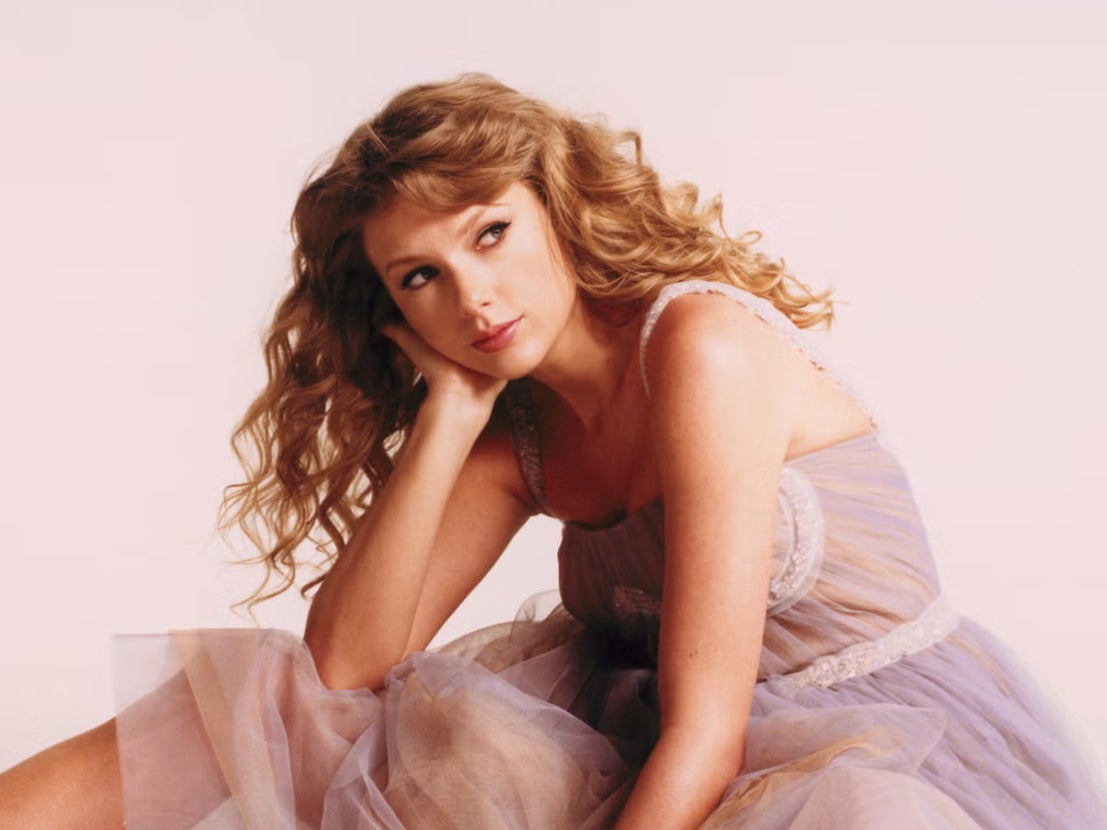Taylor Swift review, Speak Now (Taylor’s Version): A stunning rediscovery of a musician at a crossroads
Even without the country twang, Swift embodies her younger self fully

The Swiftie fatigue should’ve set in by now. The pop star, 33, is everywhere: she is re-recording old albums and releasing them periodically while also on a very sold-out, very publicised world tour, clips of which circulate hourly on social media. And yet, still fans awaited Speak Now (Taylor’s Version) with the same heady anticipation as if it were a release from an elusive artist who seldom puts out music, not pop’s hardest-working star.
It’s the third of six albums that Swift is re-recording in order to take legal control of her back catalogue. Originally released in 2010, Speak Now arrived sandwiched between 2008’s Fearless and 2012’s Red (the two records, in fact, that Swift has already remade). To listen to Speak Now, written entirely by a then 20-year-old Swift, is to hear an artist in transition – both in her music (Swift cleaves closer to pop here than she had ever done previously) and her profile, which was rising rapidly and dizzyingly.
As with previous Taylor’s Versions, the most obvious change is Swift’s voice, which is expectedly richer and more mature than it was a decade ago. It is also notably less country. That nasal twang that once plucked against the lovestruck chorus of “Mine” is no more. Its absence slightly blunts the fun factor in singing along, but not by much. (Notably too, the fiddle appears to sit lower in the mix of the rootsy, bluegrass-influenced kiss off “Mean”).
But really, the record’s appeal exists in how true it stays to the source material. This isn’t an opportunity for reinvention, but rediscovery. The shimmery haze of “Enchanted” is as enticing as ever, as is the bruised, bluesy ballad “Dear John” that takes aim at an unkind ex-lover. John Mayer, though – whom Swift briefly dated and whom the song is heavily rumoured to be about – is perhaps part of the minority who was not eagerly awaiting another round of Speak Now. Last night, he shared a photo of the night sky at his Colorado concert lit up with the words “please be kind” possibly in anticipation of the vitriol likely reinvigorated and heading his way (again).
Lyrically, too, these new versions do not stray far, if at all. The only exception is “Better than Revenge”, which has undergone one significant tinkering. The Paramore-indebted number, a pop-punk savaging of a girl who stole her boyfriend, originally included the line: “She’s better known for the things that she does/ On the mattress, whoa.” To the dismay of some fans, Swift has traded in the barbed taunt for a vaguer sentiment, something about a moth and a flame.
Sprung from the vault are six new tracks. Co-produced with her frequent collaborators, Aaron Dessner and Jack Antonoff, these include features from Fall Out Boy (“Electric Touch”) and Hayley Williams (“Castles Crumbling”). The most talked-about track is “When Emma Falls in Love”, a lilting piano-led number that is the spiritual predecessor to “Betty” (2020’s Folklore) and “Dorothea” (2020’s Evermore). The best, though, is the very danceable “I Can See You” – a track that conjures an indie-rock mood not unlike those found on Swift’s most recent records. The past typically isn’t the most comfortable place to inhabit, but Swift embodies her younger self fully, imbuing these tracks with the same immediacy and emotional heft as she did all those years ago. Country twang or not.
Join our commenting forum
Join thought-provoking conversations, follow other Independent readers and see their replies
Comments


Bookmark popover
Removed from bookmarks